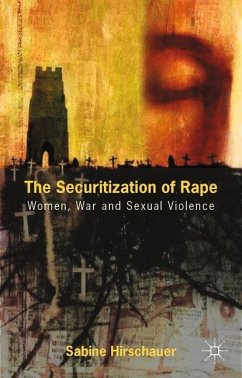This book uniquely applies securitization theory to the mass sexual violence atrocities committed during the Bosnia war and the Rwandan genocide. Examining the inherent links between rape, war and global security, Hirschauer analyses the complexities of conflict related sexual violence.
"The Securitization of Rape is a powerful, well-written, and well-researched exploration of the history, legal status, and theorization of wartime rape. What makes the book a singular contribution, though, is the combined empirical depth and theoretical sophistication. After several decades of conversation about rape as a weapon of war, Hirschauer's use of securitization theory is both a fresh take and a smart approach. It makes the book a must-read for students and scholars." - Laura Sjoberg, University of Florida, USA
"'Remembering forward' through the lens of the Bosnian and Rwandan cases continues to shape our understanding of international law, mass violence, and particularly violence that is profoundly gendered. By foregrounding securitization theory, Hirschauer not only reaffirms the rape-security connection, but also illustrates the flawed and often violent (re)production of gender. This book makes a compelling argument for the emergence of a gradually maturing universal normative framework. All readers will benefit from her accessible yet sophisticated exploration of 'speech acts' and their complex legacies." - Heidi Hudson, University of the Free State, South Africa
"'Remembering forward' through the lens of the Bosnian and Rwandan cases continues to shape our understanding of international law, mass violence, and particularly violence that is profoundly gendered. By foregrounding securitization theory, Hirschauer not only reaffirms the rape-security connection, but also illustrates the flawed and often violent (re)production of gender. This book makes a compelling argument for the emergence of a gradually maturing universal normative framework. All readers will benefit from her accessible yet sophisticated exploration of 'speech acts' and their complex legacies." - Heidi Hudson, University of the Free State, South Africa








